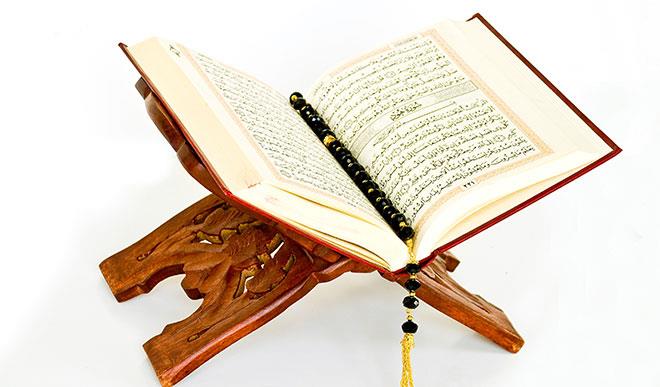Position of Islam on visiting fortune-tellers
Islam has taken a strong position against visitation of fortune tellers and the art of fortunetelling. The Islamic ruling with regard to a Muslim who visits a fortuneteller and believes what he (the fortuneteller) tells him or believes that the fortuneteller knows the unseen and the future, is that it is kufr (disbelief), according to […]


Islam has taken a strong position against visitation of fortune tellers and the art of fortunetelling. The Islamic ruling with regard to a Muslim who visits a fortuneteller and believes what he (the fortuneteller) tells him or believes that the fortuneteller knows the unseen and the future, is that it is kufr (disbelief), according to the scholars. They based their evidence on the saying of Allah: “With Him are the Keys of the Ghayb (unseen); none knows them but He.”(Qur’an 6:59).
Allah also told Prophet Muhammad (saw): “Say! I have no power to bring good to myself nor avert harm but it is only as Allah wills. If it were that I knew the unseen, I would have multiplied the good and no evil would have touched me.” (Qur’an 7: 188).
Allah also said: “Say! None in the heavens nor the earth knows the unseen except Allah.” (Qur’an 27:65)
There are many similar verses in some other chapters of the holy book. But Allah, in some of the verses, said he revealed some of the knowledge of unseen to His chosen Prophets and Messengers in order to preach His message to the people.
Abu Hurayrah and al-Hassan bin ‘Aliy (as) both reported from Prophet Muhammad (saw) that he said, “Whosoever approaches a fortuneteller and believes what he says, he has disbelieved in what had been revealed to Muhammad” (Ahmad).
This is because such a belief assigns to creation some of the attributes of Allah with regard to the knowledge of the unseen and the future.
Islam also opposes any form of association with those who practice fortunetelling, except may be to advise them to give up their forbidden trade.
The prophet was reported by one of his wives, Hafsah bint Umar (May Allah be pleased with them), as saying, “The sallah of whoever approaches a fortuneteller and asks him about anything will not be accepted for 40 days and nights.” (Muslim)
The scholars said the punishment stated in this hadith is simply for approaching a fortuneteller and asking him/her out of curiosity. But believing him/her amounts to disbelief in Islam.
The above hadith is further supported by another hadith reported by Mu’awiyyah Ibn al-Hakam as-Sulamee in which he said: “O Messenger of Allah, verily there are some people among us who visit oracles.” The prophet replied: “Do not go to them.” (Muslim)
The Islamic scholars said there is prohibition on visiting the fortuneteller because it is the first step to belief in fortunetelling. For instance, if one went to him doubtful about the truthfulness of his predictions, and some of the predictions later come true, one may become a true devotee of the fortuneteller and a believer in fortunetelling.
The scholars said the ruling of going to or and believe in what fortuneteller predicts, includes, by analogy (Qiyas), those who read the books and writings of fortunetellers, listen to them on the radio or watch them on the television because all these are the most common means used by the modern day fortunetellers to spread their predictions.
“Therefore, all the various methods used around the world by oracles, fortunetellers, and the likes, are forbidden to Muslims. Palm-reading, I-Ching, fortune cookies, tea leaves as well as Zodiac signs and Bio-rhythm computer programs, all claim to inform those who believe in them about their future. However, Allah has stated in no certain terms that He alone knows the future: “Verily the knowledge of the Hour is with Allah alone. It is He who sends down the rain and knows the contents of the wombs. No one knows what he will earn tomorrow nor in which land he will die, but Allah is all-knowing and aware.” (Qur’an 31: 34)
“Therefore, Muslims must take utmost care in dealing with books, magazines, newspapers as well as individuals who, in one way or another, claim knowledge of the future or the unseen. For example, when a Muslim weather-man predicts rain, snow, or other climatic conditions for tomorrow he should add the phrase, ‘In sha Allah’ (If Allah so wishes). Likewise, when the Muslim doctor informs her patient that she will deliver a child in 9 months or on such and such a day, she should take care to add the phrase ‘in sha Allah’, as such statements are only estimations based on statistical information”, wrote Dr Abu Amenah Bilal Philips in his book, The Fundamental of Tawhid.
